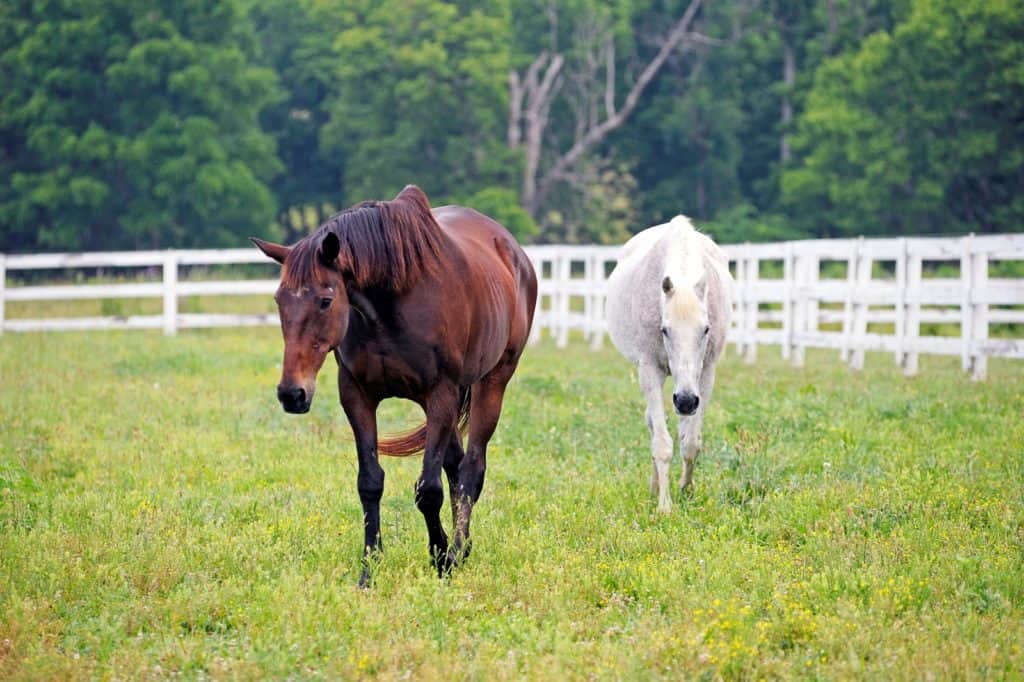In the world of horse care, few topics draw as much interest and discussion as custom horse feed blends. These blends are designed to meet the unique dietary needs of each horse, helping to improve their overall health and performance. In this article, we’ll delve into the intricacies of these blends, offering insights into why they’re so beneficial and how to create a blend that is tailored for your horse.

Understanding Horse Nutrition
Before diving into the specifics of custom horse feed blends, it’s essential to understand the basics of horse nutrition. Horses have complex dietary needs, requiring a balance of carbohydrates, proteins, fats, vitamins, and minerals. Each of these components plays a critical role in maintaining the health of the horse. A diet that lacks in any of these nutrients can lead to severe health issues, including weight loss, poor coat condition, and more severe ailments. For a deeper dive into vitamin needs, consider the article on Vitamin A Deficiency.
The Role of Custom Horse Feed Blends
Standard horse feeds may not always meet the specific needs of every horse. Factors such as age, breed, activity level, and health status can all influence a horse’s nutritional requirements. Custom horse feed blends allow owners to adjust the feed formula to better suit those needs, whether it is increasing protein for muscle growth or adding specific minerals to support bone health.
Benefits of Custom Blends
One significant advantage of tailoring a horse’s diet with these blends is the ability to address specific health concerns. For instance, a horse prone to laminitis may benefit from a low-starch mix, whereas an older horse may need more vitamins and minerals to support its aging joints. Additionally, custom blends can enhance performance for competitive horses by providing the exact nutrients that match their exercise regimen.
Analyzing Your Horses Needs
Crafting the perfect feed begins with accurately analyzing your horse’s individual needs. Conducting a thorough assessment, preferably with the help of a veterinarian or equine nutritionist, is crucial. They can perform a complete diet evaluation and identify which nutrients your horse may be lacking.
Utilizing Nutritional Analysis
A nutritionist might use tools like forage test results to determine the nutritional content of the horses current diet. By understanding this baseline, the feed blend can be appropriately adjusted.
Components of a Custom Feed Blend
Typical custom horse feed blends are made up of various components, each serving a critical function for the horses health and wellbeing. Let’s explore some common ingredients:
Grains and Forages
Grains, such as oats and barley, and forages, like alfalfa, make up a significant portion of most horse diets. Customizing these elements can help manage energy levels and digestibility. Heres more about different types of feed, such as pelleted feed and stacked feed.
Proteins, Vitamins, and Minerals
Adding or modifying protein sources can support muscle development and recovery. Vitamins and minerals must be tailored to address any deficiencies, ensuring your horse gets the support needed for healthy growth and physiological functions.
Creating a Custom Blend
Creating a blend often involves collaboration with experienced formulators who understand the specific needs of equines. Horses, like humans, have unique preferences and dietary requirements, making expert guidance critical in developing feed that is both palatable and nutritionally balanced.
Key Considerations
Important elements in the formulation process include matching ingredients to your horses preferences, sourcing high-quality ingredients, and ensuring manufacturing processes maintain the feeds nutritional integrity.
Monitoring and Adjusting the Diet
Once a custom horse feed blend is put in place, careful monitoring is vital to ensure that it fulfills its intended purpose. Regular assessments of the horses health, behavior, and performance should guide any necessary dietary adjustments. Non-GMO feed might also be a consideration depending on the horse and owners preferences.
Signs to Watch For
Keep an eye on indicators such as weight changes, coat quality, and energy levels. These can provide insights into whether the feed is effectively meeting the horse’s needs.
Challenges and Solutions
Development of a custom horse feed blend is not without its challenges. Factors such as ingredient availability, cost, and horse palatability issues may arise. It requires a concerted effort to address these challenges while still prioritizing the horse’s health and nutrition.
Addressing Ingredient Availability
Working with a reputable feed provider can help avoid ingredient shortages. This ensures consistency in feed blends and availability of alternative ingredients if needed.
Balancing Costs
While costs can mount with custom solutions, strategic sourcing and blend adjustments can help manage these costs effectively.
Conclusion
In today’s equestrian world, custom horse feed blends represent a leap forward in personalized animal care. By precisely matching nutrition to each horses needs, owners can significantly enhance the quality of life and performance of their equine companions. Through collaboration with nutritional experts, regular monitoring, and ongoing adjustments, these blends offer an unparalleled opportunity for advancing horse health.

FAQ
What ingredients are typically used in custom blends?
Common ingredients include grains, forages, proteins like soybean meal, and essential vitamins and minerals tailored to individual health needs.
How do I know if my horse needs a custom blend?
Consider a custom blend if your horse has specific dietary requirements related to age, health conditions, or performance needs. Consulting with an equine nutritionist can provide clarity.
What are the most important nutrients to focus on?
While all nutrients are essential, proteins, amino acids, vitamins, and minerals often play pivotal roles depending on the horses specific situation.
This article contains affiliate links. We may earn a commission at no extra cost to you.








